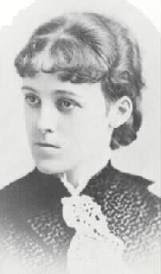
This is a gripping story about a man doing nothing.
Newland Archer is engaged to be married to a beautiful and innocent young lady, the flower of nineteenth century New York society. Then her cousin Ellen arrives, a slightly older lady with the whiff of scandal hanging on her. Archer begins to fall in love with Ellen, and so pushes forward with speeding up the wedding, so as to be safe. Once married, he realises that he is not at all safe, and is only falling further in love with his wife’s cousin.
I won’t tell you more, so as not to ruin if for you, but I will tell you that basically nothing happens. And so good a writer is Wharton that it is as compelling as watching a car crash. It’s also an awful meditation on what it means to accept what is given to you. Here’s Archer considering his marriage, his career, and his life in New York:
“The taste of the usual was like cinders in his mouth, and there were moments when he felt as if he were being buried alive under his future.”
It’s a similar theme to the equally scarring ETHAN FROMME. I met someone at dinner last night who told me that everytime things are going well with a girl, he starts to worry there’s going to be a sledding accident. This is the effect this book can have when read at a tender age, and AGE OF INNOCENCE is the same. I can only wonder what awful personal choices Wharton is working through in these books.
Don’t however get the impression from this the book is not funny; it’s often extremely witty. Here is an obese old lady:
“The immense accretion of flesh which had descended on her in middle life like a flood of lava on a doomed city had changed her from a plump active little woman with a neatly-turned foot and ankle into something as vast and august as a natural phenomenon. She had accepted this submergence as philosohpically as all her other trials, and now, in extreme old age, was rewarded by presenting to her mirror an almost unwrinkled expanse of firm pink and white flesh, in the centre of which the traces of a small face survived as if awaiting excavation.”
The book is also interesting on the subject of gender, raising a question I have often wondered about: why did the men of the nineteenth century want innocent virgins so much? Wouldn’t it be boring? Wouldn’t you rather have someone who’d been around the block? I guess there is an evolutionary piece of this puzzle, but it is interesting to see Archer worry about it.
“It would presently be his task to take the bandage from this young woman’s eyes, and bid her look forth on the world. But how many generations of the women who had gone to her making had descended bandaged to the family vault? He shivered a little, remembering some of the new ideas in his scientific books, and the much-cited instance of the Kentucky cave-fish, which had ceased to develop eyes because they had no use for them. What if, when he had bidden May Welland to open hers, they could only look out blankly at blankness?”
Edith Wharton clearly fought the hard fight for women of her period, and it’s depressing to reflect that that battle still has to be fought. Google Jonathan Franzen’s barf making reflection on Wharton’s career, in which – believe it if you can – he goes on about . . .HER APPEARANCE. Here’s LA Review of Books reflection:
And later,(Franzen says) “Edith Wharton might well be more congenial to us now, if alongside her other advantages, she’d looked like Grace Kelly or Jacqueline Kennedy.”
Do we even have to say that physical beauty is beside the point when discussing the work of a major author? Was Tolstoy pretty? Is Franzen? Wharton’s appearance has no relevance to her work. Franzen perpetuates the typically patriarchal standard of ranking a woman’s beauty before discussing her merits, whether she is an intellectual, artist, politician, activist, or musician.
I mean, Franzen. Franzen. Be serious. I didn’t even know what Edith Wharton looks like. How you be grading weird old nineteenth century pictures of dead women?

Franzen is an a$$. A good writer, a chauvanistic man.